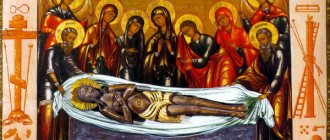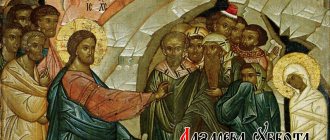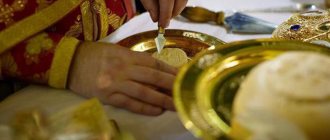Today, May 2, 2022, the Orthodox people celebrate the most important religious event - the Resurrection of Jesus Christ, Easter. Even on this joyful day, you can meet many people at the cemetery who have come to remember the dead, leave them on the graves or distribute Easter cakes with colored eggs to passers-by. But is it possible to remember and go to the cemetery on such a big holiday? And is this allowed during Easter week?
Easter and the next week are dedicated to a bright and joyful event. During Easter week they talk about the victory of spiritual life over the frailty of the body. All of it is considered festive and is otherwise called Bright Week. Orthodox Christians think every year whether it is right to go to the cemetery on such a week.
The origins of the tradition of visiting graves at Easter
It is believed that during the Great Holiday, believers began to come to the graves of those who died under the Soviet Union. However, this tradition is rooted in more ancient years; it appeared much earlier than the expected period, which surprises those who are accustomed to thinking otherwise.
People at the cemetery
Long distances to churchyards
When villages are built, infrastructure is also provided. This allows the population to work and live fully. This means that there is always a church nearby, as well as a graveyard (cemetery). But such a settlement scheme is not always taken as a basis, but mainly in large villages. Accordingly, on religious holidays it is easy for believers to visit the church as many times as necessary, and the cemetery on other days.
Small villages are structured differently. Most of them are one short street with a small number of residential buildings and some abandoned housing. Most often there is no church here. There may only be a small chapel, but this is a rare case.
Usually, the population of such villages was forced to go on a long journey in order to get to the church located in the neighboring village for the feast of the Resurrection of Christ. For this reason, they visited the churchyard at the same time - after the end of the festive service during Easter. We had to break our fast there, because there was a long way back ahead.
Visiting a relative's grave
Soviet tradition during the persecution of the church
Under the USSR, churches began to close; priests were not able to conduct services. Churches were deprived of their lands, and the idea of “the withering away of religious prejudices” was introduced. The authorities actively contributed to its development and spread. Atheism was also promoted among the population. However, this position never became official.
When believers lost the opportunity to visit the temple, they found a way out - to come to the graves of relatives in order to conduct simple rituals, including funeral services. Priests were also invited here to read prayer texts. Gradually, the terror against the church and clergy came to naught.
Religion began to recover. But the long-standing tradition of gathering at the cemetery on Easter Day has been preserved. More than one generation has grown up with it, and therefore it has become almost impossible to abandon habits formed over decades. Today the Church prohibits going to the churchyard when Easter comes.
Orthodox Church
Is it a sin to remember in cemeteries on holidays?
In the Holy Scriptures there is no direct prohibition on visiting the churchyard on holidays or Bright Week. If a person wants to go to the graves of relatives on Easter, then this is not a mortal sin. The position of the church is explained by the presence of certain rules, specially designated days for joy and sorrow. When Easter comes and people ask whether they can go to the cemetery, the clergy do not forbid, but strongly recommend that they refuse to remember relatives in cemeteries, and even more so, to clean the graves.
There are more and more believers every year. For an Orthodox person, fulfilling the rules of celebration has great spiritual significance. Therefore, churchgoers refuse to go to the churchyard on holidays, preferring to pray for their loved ones at a certain memorial time.
The meaning of Easter Sunday
Jesus Christ is the Son of God, he is also the center of biblical history, and at the same time of Christian teaching. The Orthodox religion declared the holiday of the Resurrection of Christ to be the main one; it is defined as “the triumph of triumphs.” The name comes from the Hebrew “passover”, associated with “passover”, which means “passed”: during the destruction of the firstborn of Egypt, the Lord passed through the houses of the Jews, leaving their babies alive. This is the holiday of salvation of the Jewish people.
Easter acquired a slightly different meaning later, when Christianity arose: “the transition from death to life.” Just as the Lord gave the Jews the opportunity to free themselves from Egyptian slavery, so a Christian is no longer a slave to his sins, which became real thanks to the death of Christ, who suffered for the atrocities of all mankind. The church's celebration of Easter lasts 40 days. The most solemn day is determined according to the lunisolar calendar.
For this reason, the holiday has become moveable - celebrated on different days every year.
Orthodox Church - ministry
Why does the church prohibit commemorating the dead on Easter?
The clergy explain that there is no prohibition on performing the Rite of Burial to bid farewell to the departed on the day of the Resurrection of Christ, as well as organizing at this time the commemoration of the deceased who died earlier. But there is a main condition: services are held after the end of Easter: every other day or later. It is permissible to reschedule a funeral if it falls on that day.
The reason for holding the service 1-2 days later is explained by the fact that the Resurrection of the Son of God is the main holiday for believers (Orthodox Christians). It carries a deep meaning - the triumph of life over decay, the great joy that is caused by the Resurrection of the Son of God, who suffered for the sins of people. It cannot be overshadowed by grief.
These are inappropriate feelings during the Great Holiday. Accordingly, the answer to the question whether it is possible to go to the cemetery on Easter will be clearly negative. Even if judged not by divine laws, but by human ones, remembering the Son of God during the Feast of the Resurrection is simply an inappropriate action.
Funeral kutia
How to pray for the dead during Easter week
There are private prayers, general church prayers, and the priest’s prayers before the altar. Orthodox Christians can also read cell prayers for the departed on Easter. General church prayers are not pronounced either on a holiday or during Easter week. Behind the throne at the Liturgy, a clergyman reads prayers, remembering the deceased and rereading memorial notes.
For the first 3 days of Easter week, the Liturgy of the Presanctified Gifts takes place in churches. During it, you cannot read the anaphora, pray for the departed, and therefore remember them.
If a person dies during Easter week, a funeral service is held for him, but not during Great Friday. The funeral service takes place according to the Easter rite, and is practically no different from the funeral service of a clergyman or bishop. According to the text of the Trebnik:
- ... if someone reposes on Holy Easter, then at the funeral service little is sung from the usual singing for the departed, for the sake of the greatness and honor of the bright holiday of the Resurrection: joy and joy, and not lamentation, is a holiday; and as everything is about the risen Christ, in the hope of resurrection and eternal life he dies. Christ's resurrection from the sadness of this world is marked by joyful and cheerful ones; the Church proclaims the resurrection singing over the departed.
Days of remembrance of the dead: order of remembrance, visits to the graveyard
The Church has designated several special memorial days when you can go to the grave in order to pay tribute to your loved ones. It is enough to visit the deceased 5-6 times a year. At other times, you should pray at home, and you can directly contact the dead, they will hear everywhere.
Parents' Saturdays
Several days of remembrance are celebrated:
- Meat-free Parental (aka Ecumenical) Saturday - the service is performed 1 week before the start of Lent;
- Parental Saturdays on the eve of Easter - during Lent: for the 2nd, 3rd, 4th week of voluntary asceticism, regular prayers in preparation for meeting the Son of God on His Great Sunday;
- Dimitrievskaya Parent's Saturday - falls on one of the weekend days of autumn (November 8), is considered the last time when one should come to the cemetery in order to perform a wake for the deceased; this date is also celebrated as the day of the Great Martyr Demetrius of Thessalonica.
A candle for the repose of the soul of the deceased
It is customary to remember not only parents, but also all those who have previously died. Traditionally, worship is held. Its order:
- reading 17 kathisma;
- pronouncing a special canon;
- In the morning of the next day, a liturgy is celebrated, and after that a memorial service.
You can send notes for the deceased, and leave food on the memorial table (eve). After the end of the service, it is customary to go to the cemetery. On this day, it is recommended to clean the grave.
Radonitsa - holiday after Easter
The holiday is held on the ninth day of the Easter period. It falls on Tuesday of the week following the Resurrection of Christ. Radonitsa entered Christianity back in the days of paganism, then the holiday was called Radunitsa. People got used to celebrating it, so the tradition was continued, but this day acquired a different meaning: the living share with the departed the great joy of the resurrection of Christ. It is customary to go to the graves of the deceased. This custom does not cancel the performance of divine services in church. A memorial service is being held. In addition, it is recommended to perform a funeral lithium at the graves of the dead.
You can also go to the cemetery on the Sunday following Easter - Krasnaya Gorka (Beautiful). Other names of the holiday: Antipascha, Fomino Sunday. Its meaning is a memory of the appearance of Christ to the Apostle Thomas. In many regions, Russians go to the cemetery on this day.
Radonitsa
Trinity Ecumenical Parents' Saturday
The memorial day is celebrated before Trinity and Pentecost. Previously it was believed that it was possible to combine a visit to the graveyard and a funeral. This meant preparing a meal, eating food at the grave of the deceased. The main meaning of the holiday previously was the need to “feed the dead.” Today, the meaning of Trinity Parental Saturday has changed somewhat, but it is still celebrated among the dead, at their graves. However, it is no longer possible to conduct a funeral meal in this manner.
Calendar for counting days of commemoration
LiveInternetLiveInternet
When do they go to the cemetery after Easter according to Orthodox tradition? The priests answer: Traditionally, they go to the cemetery after Easter - on Radonitsa. This is a day of special remembrance of the dead, which takes place on the Tuesday after Easter week (9th day after Easter). — Visiting graves on Easter itself is the height of misunderstanding of the meaning of celebrating the Resurrection of the Lord. — Going to a cemetery is a common mistake on Easter, since it is a holiday of the living. The same applies to church holidays - Christmas, Trinity, Annunciation, etc. - It is highly not recommended to go to cemeteries these days. After all, deceased people no longer belong to this world, but are in the Kingdom of Heaven. — Radonitsa, after Easter there is a parent’s day. On this day, parents are remembered.. - According to Orthodox church traditions and the Charter - the cemetery must be visited - on the 9th day after Easter - Radonitsa - the deceased should also feel - the holiday of Easter. - The name of this day - Radonitsa - suggests that both the living and the dead rejoice at the Resurrection of Christ. — During Easter week, which is imbued with the joy of the Resurrection of Christ, it is not even customary in churches to submit notes in remembrance of the dead. - In order to share the joy of Easter - this event with the deceased, it is customary to come to their graves - in Radonitsa, which is celebrated on the 9th day - from the main holiday of Easter. - Radonitsa (Radunitsa) - a memorial day falling on Tuesday of St. Thomas (Radonitsa) week. The name “radonitsa” comes from the word “rad” - joy about the coming resurrection of the dead, as well as from the Lithuanian - rauda - “crying with lamentation”. Radonitsa is Easter for those who are in the other world . Radonitsa falls on Tuesday of the second week after Easter . - "Christ is Risen!" - you can also congratulate your deceased, we come to our relatives, congratulate them, talk. The main thing is that these days are not filled with sorrow, but with joy and hope that we will all be resurrected. - On Radonitsa - commemoration of the dead is performed on Monday or Tuesday of the week following Easter. It is more often colloquially called parent's day for visiting the graveyard. A visit to the cemetery at Radonitsa is a must and commemorates the fact that Christ descended into hell and conquered death. This day is considered a kind of holiday for the departed. After all, relatives, gathering at the grave, congratulate them on the resurrection of the Lord. After Easter, the first day when memorial services are served for the dead is Radonitsa - on this day believers try to attend services in the church and come to the cemetery to pray for their deceased relatives . The word - Radonitsa - is consonant with the word - “joy”. — The most important Christian holiday, Easter, continues, everyone around rejoices at the Resurrection of Christ and His victory over death. And therefore, remembering our loved ones in prayers on this day, we must, first of all, rejoice with them about the Risen Savior, who descended into hell and brought the righteous out of there. — The bright holiday of Easter was preceded by Great Lent, during which commemoration of the dead during divine services was performed only at Saturday and Sunday services. In order not to deprive the dead of daily commemoration during the Liturgy, the Church established days of special prayer for them - Saturdays - the 2nd, 3rd and 4th weeks of fasting. — According to Orthodox tradition, when is it correct to remember the dead and go to the cemetery—after Easter? - Starting from Radonitsa - the 1st Tuesday after Easter week - we again perform memorial services - full funeral services. That's right - after winter, go to the graves, the last refuge of your loved ones. Usually after Easter they go to the cemetery - on Radonitsa (this is the 2nd Tuesday after Easter - the 9th day after Easter) - this is a day of special remembrance of the dead - parent's day. — During Holy Week and another 8 days after Easter , you cannot go to cemeteries . - Radonitsa is always celebrated on the 1st Tuesday after Easter week. — And the first post-Easter Saturday falls on the 49th day after Christ’s Resurrection, on the eve of Pentecost, the day of the descent of the Holy Spirit on the apostles. Easter is a great Orthodox holiday. People are preparing for it, putting order and cleanliness in their homes. — If a person is a believer, if he observed Lent and tries to live according to church laws, then to the question “ is it possible to go to the cemetery on Easter?” - the answer will be “ no” . To visit the cemetery, the Church appoints a special day - Radonitsa (from the word joy - after all, the Easter holiday continues) - and this holiday takes place on the Tuesday after Easter week . - This day has a separate name - Radonitsa . — It was allocated specifically to visit the cemetery and remember the dead . — On this day, a funeral service is served and believers visit the cemetery to pray for the departed, so that Easter joy will be passed on to them. - You need to the cemetery on Parents' Day , which happens a week after Easter - next Tuesday . — The priests agree that it is better to perform this ritual on days specially established for it . “But after the week-long Easter rejoicing has passed, it’s not a sin to pray for the dead. - First to the temple - to Radonitsa, and then to the cemetery just right, only with a prayer for relatives. — The correct time to visit cemeteries is on Radonitsa — after Easter . Visiting the cemetery after Easter - after 7 days - is the best option, then you can do it at least every day. — On all other days, if the desire arises, it is recommended to attend church and light candles for the repose. — The next suitable days for visiting the cemetery, the graves of relatives in flesh and blood are the second Saturday after Easter . - There are other memorial days for this - Monday, Tuesday a week after Easter , Trinity Parental Saturday; Spirits Day - This is the popular name for the holiday of the Descent of the Holy Spirit: Celebrated on the first Monday after Trinity . - Usually in the church it is recommended to visit the cemetery on the days of remembrance of the dead, on the day of death of the one who is going to visit the cemetery - on Radonitsa, and it is also allowed to visit the cemetery every Saturday - it is considered a funeral day. — AT THE CEMETERY: When they go to the cemetery, they behave calmly, without unnecessary emotions. Avoid laughing or crying loudly. Do not swear. Don't spit or litter. Upon arrival at the grave, a positive action would be to light a candle and remember the deceased. You should not drink or eat near the gravestone. Host a memorial dinner at home. Do not step on or jump over graves. There is no need to touch other people's graves or restore order there, unless the relatives of the person buried there have asked you to do so. — Until the 40th day, the deceased is called newly deceased. - Commemoration of the newly deceased in the first time after death is important and necessary because it makes it easier for the soul of the deceased to transition from temporary to eternal life and helps to go through the so-called ordeals. — When can you go to the cemetery: on the day of the funeral; days of remembrance of the dead include the 3rd, 9th, 40th days after death; every year on the day a person passes away; on memorial days - Monday and Tuesday of the week following Easter; 2nd, 3rd and 4th Saturdays of Lent; Trinity Saturday is the day before the Feast of the Holy Trinity; Dmitrovskaya Saturday - the first Saturday in November; Meat-eating Saturday, the week preceding Lent. - When Orthodoxy does not welcome visiting the graves of relatives and going to the cemetery: on such Christian holidays as Easter, Annunciation and Christmas; Trinity is also not celebrated in the cemetery - people go to church on Trinity; it is believed that there is no need to go to the churchyard after sunset; Women are advised not to visit the site of the dead during pregnancy or menstruation. But this is a personal choice of every woman. “It would be wrong to go to his tomb on the birthday of a deceased person.” You can just remember him with a kind word. But there is another opinion that such memorable dates as a birthday or Angel’s Day also serve as an occasion to commemorate the deceased. These days you can also invite a priest to the grave. — Commemoration these days dates back to ancient times. In the Apostolic Decrees it is written: “Perform the thirds of those who have fallen asleep in the psalms, in readings and prayers for the sake of the Risen One on the 3rd day, and the tithes in remembrance of those who have died here, and the fortieths according to the ancient model, for this is how the people of Israel mourned Moses, and the anniversary of the memory deceased." There is also a custom to remember the deceased on every death anniversary, birthday and Angel Day. These days, the closest relatives gather to remember the deceased with prayer over a joint meal. In the church they submit a note for the Liturgy or order a memorial service and consecrate the kolivo. Days of special remembrance of all deceased Orthodox Christians - Each day of the week in the Orthodox Church is dedicated to a special remembrance. Saturday is dedicated to the memory of all Saints and the deceased. On Saturday - “rest” - the Church prays for all those who have passed into the afterlife. In addition to daily prayers and prayers on Saturday, there are separate days throughout the year, mainly dedicated to prayers for the dead. These are the so-called parental days (“grandfathers”): On parental days, Orthodox Christians visit churches where funeral services are performed. On these days, it is customary to bring sacrifices to the funeral table (eve) - various products (with the exception of meat). Food is also brought to the funeral table on other days when the funeral service is celebrated, i.e. - this is alms for the dead. On spring and summer parenting days (Radonitsa and Trinity Saturday), it is customary to visit the cemetery after church: to straighten the graves of deceased relatives and pray next to their buried bodies. The best thing a person can do for the dead is to say a prayer, at least this short: - “Rest, O Lord, the souls of your departed servants, all our relatives and friends, and forgive them all sins, voluntary and involuntary, and grant them the Kingdom of Heaven " When to go to the cemetery: In a situation where you live far from the grave of your relatives or simply do not have the opportunity to visit them, but there is a desire to pay attention and remember them, go to church and light a candle for the repose. You need to know that such candles are not lit on the days of Holy Week and the days of Bright Week. Also in the church it is possible to order a memorial service (prayer for the dead) or litia (intensified prayer) from the priest. You can pray yourself: read the Psalter or the litany performed by a layman. In the case when something was dropped on the dead earth at a grave in a cemetery, it is better not to pick up this thing. If the fallen object is very important, pick it up and put something in its place (sweets, cookies, flowers). When leaving the cemetery, do not turn around, and, especially, do not return. Under any circumstances, remember your deceased loved ones, and when you come to their graves, behave appropriately, because a cemetery is sacred land, a resting place for the dead.
Behavior in the cemetery, according to church canons
Christian traditions presuppose the need to observe certain rules in holy places, as well as during visits to the dead. Some actions should not be performed; they are perceived sharply negatively, because they contribute to the manifestation of disrespect for God.
Behavior in the cemetery
What is strictly prohibited
You should not be too noisy, listen to music, or laugh loudly. In churches and monasteries they order commemoration of the dead: liturgy, requiem service, Sorokoust. Cell prayer is an obligatory stage of the celebration of Remembrance Days. In this case, you can read the sacred text at home or at the grave.
Bring Easter cakes and other food
According to early Christian customs, people celebrated the day of remembrance in the churchyard. Those who could brought food and ready-made meals to remember the deceased at the grave. The tradition was formed on the basis of paganism, when it was believed that the soul needs the same things as a living person. Today priests explain that the incorruptible shell expects only prayer from loved ones.
For this reason, going to a cemetery is a way to show respect and care for the soul of the deceased.
Drink alcohol, smoke, swear
You cannot sin during the Great Holidays. At the same time, the magnitude of atrocities increases, and it will be more difficult to cleanse the soul. Drinking alcohol, like smoking, and drug addiction are actions that also harm the incorruptible shell. At the same time, the evil caused to the body comes in last place, even though God bequeathed to people to take care of their physical shell. The main danger is the destruction of the soul against the background of lust.
Foul language is another sin. Even if a person sometimes violates the laws of God, he should not do this during the Great Holiday.
Behave provocatively
Modesty is a rare virtue today. But believers know that this is one of the main qualities, and therefore do not behave provocatively, especially in holy places and at the graves of relatives. It is important to remember that the souls of the deceased can see their loved ones. They will not approve of defiant behavior.
Girl in the cemetery
Bring animals
The temple is the home of believers. Bringing animals here is blasphemy, as they are considered unclean. At the same time, the boundary between what is allowed by society and permitted actions towards oneself is erased. It is necessary to realize the mistake in time, correct it, and pray for forgiveness of sins before the Lord.
Alms to the needy
Prayer is a mandatory action during memorial days. But sometimes the soul sinned a lot during life, but after death it no longer has the opportunity to repent. Her relatives can help her - she needs to do good deeds, and sincerely, without expecting any benefit for herself or her relatives, to change her character and way of thinking.
Giving alms to those in need is one of the recommended ways to learn to selflessly do good to others.
Person in need of help
Prayers for the soul of the deceased
You are allowed to stay at home during memorial holidays. For example, sometimes it is not possible to go to the grave of the deceased, which often happens to pregnant women. It is not worth going to the grave of the deceased if you have small children who have no one to leave with. You can stay at home, read sacred texts privately. If such a desire and need arises, the funeral meal is served later, which becomes especially important for believers who know the answer to the question of why they cannot go to the cemetery on Easter.
Dress code for the churchyard
To visit the graveyard, choose an outfit taking into account the occasion - it should be clothes in dark shades, but not necessarily black, as for a funeral. Anyone going to visit a relative’s grave must follow the following rules:
- for women: preference is given to skirts, dresses to the knees or longer, shoes - ballet flats or low-heeled pumps, do not wear jewelry other than what a woman usually wears, to go to the cemetery, you need to cover your hair with a scarf;
- for men: trousers, dark sweater and white/blue shirt, classic (not sports) shoes, no headdress.
Where did the tradition of going to the cemetery on Easter come from?
The Russian Empire was administratively divided into parishes. There were no temples at all in the villages; they were only in the villages. They called settlements where there were churches, regardless of how many courtyards there were in it. Graveyards appeared next to the temples. This was due to the fact that the roads in Russia were bad, so if the deceased was brought to the temple, it was convenient to bury him nearby. The majority of the population were peasants and only a small part of them lived in villages; the majority lived in villages.
For the night Easter service, people came from villages to villages, illuminated Easter, Easter cakes and eggs. On Russian roads in April it was impossible to come to the temple several times, so we came on Easter.
On a note! The people took communion, and in order not to go home in the dark along bad roads, they went to the cemetery, since it was nearby.
After the October Revolution, all books were burned, Sunday parochial schools were closed, and priests were shot. The peasants were half destroyed. The next generation remembered that they always went to the cemetery on Easter week and ate eggs and Easter cakes at the grave of the deceased. This was passed on to their children as a Christian custom, but it was not at all like that.
There is currently no need at all to go to the cemetery during Easter week, unless this is a personal desire. From the answers of the priests, the custom arose from practical considerations, so to speak, from convenience. The population previously fasted and ate bread, and in order to nourish and satiate this bread, they began to add other ingredients to it:
- raisin;
- oil;
- sugar and others.
This is how the cake turned out.
At the graveyard you need to pray for the dead, remember deceased relatives, and there are days specially designated by the church for this purpose for visiting the cemetery, which will be discussed below. The graves must be removed from the cemetery before Easter.
“Question-answer” section
When is the best time to clean up a grave?
Expert opinion
Father Pavel
Clergyman
Not knowing when they go to the cemetery after Easter, many mistakenly believe that the holiday lasts 1 day (Bright Sunday), and go straight away to clean it up - on Monday the next day. But its duration is much longer, so if possible, you should not engage in physical work near the graves at least during the first three days. Parents' memorial Saturdays before the Great Feast are provided for cleaning - the 2nd, 3rd, 4th week of Lent.
What to do if a relative died on Easter?
Expert opinion
Father Pavel
Clergyman
Today it is possible to slow down the destructive processes in soft tissues after death. For this purpose, the embalming method is used. If a person dies on Easter, the funeral is held traditionally - on the third day, i.e. later than Easter Sunday. When the date of burial falls on a Great Holiday, it is postponed and the burial takes place 1-2 days later.
Funeral of a relative on Easter
How to commemorate if the date falls on Easter?
Expert opinion
Father Pavel
Clergyman
It is recommended to hold all services aimed at the repose of the souls of the dead on days other than Easter Sunday. The 9th or 40th day should be celebrated starting from the second day after Easter, at which time Radonitsa is celebrated. On Easter, only those who have not abandoned the old habits formed among the people in past centuries go to the cemetery. Today this action is considered obscene.
When do people go to the cemetery before Easter?
Expert opinion
Father Pavel
Clergyman
For remembrance before the Resurrection of Christ, special days are designated - Saturdays of the 2nd, 3rd, 4th weeks of Great Lent. You need to look at the calendar every year to find out when they are. Easter is a moving holiday, and therefore the days of remembrance are also constantly shifting.
When did the custom of going to the churchyard on Easter days arise?
The folk custom of visiting the graves of relatives at the cemetery on Easter, as historians and some priests answer, could have originated somewhat earlier than the revolution. At that time, graveyards were located next to churches or chapels, in large villages. Residents of small villages had to travel long distances on foot or take carts to come to the temple. On Easter, believers, having served the holiday service, could go in the morning and visit the graves of their relatives and friends before returning. Some began to break their fast there before the long journey home.
The Soviet tradition of visiting the graves of relatives in the cemetery on Easter arose after the revolution, when churches were closed, priests were subjected to repression, and believers could be kicked out of work, put in prison or a mental hospital. The only place where people could meet with fellow believers, greet them, and exchange cakes with impunity was the cemetery. The burial places of relatives were a kind of symbol of the protest of believers against the tyranny of atheists. The authorities did not interfere with such communication, since this was not an Orthodox tradition. Now that faith is no longer persecuted by law, you cannot go and remember the dead in the cemetery on Easter, there is no longer such a reason.
Ban on visiting a cemetery during a pandemic
To reduce the number of contacts, it was decided to temporarily ban visits to the churchyard. This measure made it possible to avoid large crowds of people before Easter. Patriarch Kirill of Moscow and All Rus' supported this idea.
During a pandemic, it is important to act together: the church also takes part in preserving the health of citizens, along with politicians. In addition, directly during the main days of Easter celebrations, visiting the cemetery is not encouraged, which means that this measure will weaken the long-standing tradition of sowing the graveyard during this period.
Priest's comment
Father Vladimir
Clergyman
The Resurrection of the Son of God is a holiday accompanied by great joy for all believers. It cannot be overshadowed by sorrow. A note with the name of the deceased should be submitted the day before. Then he will be mentioned during the next memorial service, liturgy. It is permissible to pray for the dead privately - at home, but, again, this should be done before or after Easter. You should not think that refusing to read a prayer will offend the dead or that this can show your disrespect. On the contrary, on Tuesday (when Radonitsa arrives), the living will share joy with the dead, and then their memory will be honored.
What you can bring and what you cannot bring
Since the church does not approve of drinking alcohol at a grave, there is no need to bring any alcohol. Also, any food other than colored eggs is prohibited. Neither you, nor especially the deceased, need to organize a “feast at the grave”. Instead, invite a priest to say a prayer or conduct a small memorial service.
Be sure to take money with you to give alms to the poor and needy. Bring candles and fresh flowers, but the church recommends avoiding artificial wreaths. Yes, such jewelry is inexpensive, and their selection is very huge. But they are usually made from toxic materials that poison the environment. If your budget does not allow you to buy fresh bouquets, limit yourself to prayer. The priests say that this is enough to remember a relative.











